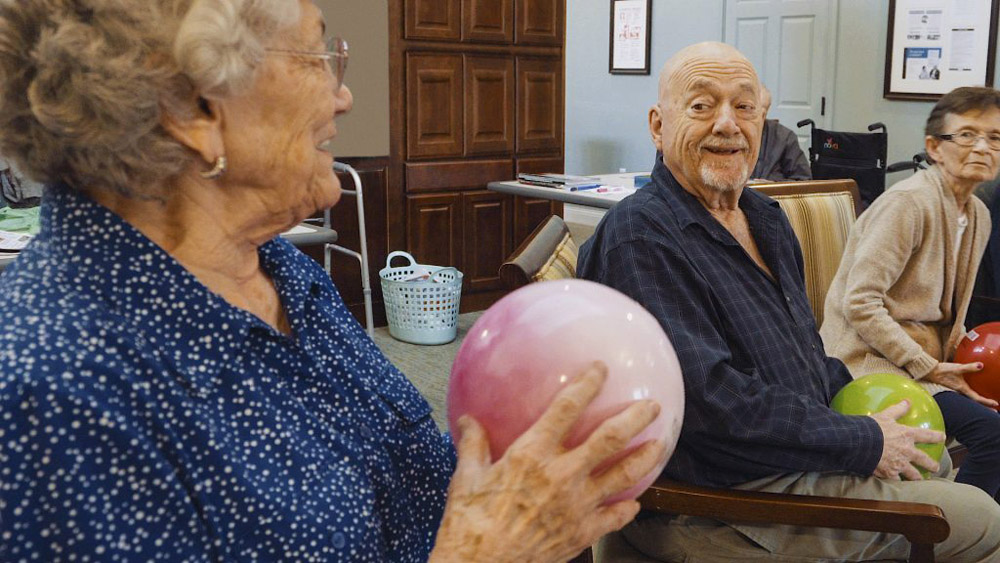Browsing Memory Care Options: What Households Required to Know
As families encounter the challenging job of maneuvering memory care options, it is necessary to come close to the decision-making process with a clear understanding of the varied kinds of care offered. From household facilities to in-home aid and adult day care, each alternative presents special advantages and considerations. Assessing these facilities requires a thorough evaluation of personnel credentials, precaution, and the total environment. Nonetheless, the trip does not finish there; monetary implications and readily available assistance sources additionally play a pivotal role in shaping notified options for liked ones. What aspects should family members focus on in this facility landscape?
Recognizing Memory Care Keys In
Regularly, people and family members facing the challenges of cognitive decrease experience numerous kinds of memory care alternatives created to satisfy diverse requirements. Memory care can be extensively categorized into household care centers, at home care, and adult daycare solutions. Each choice uses special benefits tailored to specific requirements - Specialized Memory Care Charlotte.Residential care facilities, typically described as memory care systems, give customized environments with qualified personnel that concentrate on the special requirements of locals with dementia or Alzheimer's disease. These facilities generally provide structured regimens, safe and secure settings, and social tasks targeted at improving cognitive function.In-home care enables individuals to remain in the convenience of their very own homes while receiving customized help from caregivers. This choice offers versatility and can be readjusted according to the person's progressing requirements, promoting experience and comfort.Adult daycare solutions give temporary care throughout the day, enabling caretakers reprieve while ensuring that their loved ones engage in boosting tasks. This option can be particularly valuable for households balancing job and caregiving responsibilities.Ultimately, comprehending these memory care types encourages households to make informed choices that improve the lifestyle for their enjoyed ones facing cognitive decrease
Assessing Care Facilities
When evaluating care centers for individuals with memory disabilities, it is important to filter via different factors that contribute to a helpful and effective atmosphere. Begin by examining the center's staff qualifications and training, ensuring that caregivers have specialized knowledge in memory care. A high staff-to-resident proportion is important, as it generally suggests personalized interest and care.Next, consider the center's physical environment. It ought to be secure and secure, with functions that decrease confusion and promote freedom. Search for clear signs, organized designs, and sensory excitement that can boost residents' interaction. In addition, inquire regarding the programs and activities used, as these should be tailored to citizens' cognitive degrees and rate of interests, cultivating social interaction and cognitive stimulation.Furthermore, observe the general environment during your check out. A welcoming and caring society is essential for the wellness of homeowners. Interaction with families is another essential element; facilities ought to maintain open lines of dialogue relating to citizens' progression and demands. Ultimately, look for responses from existing homeowners' households to assess satisfaction and experiences, as this can provide insights into the facility's overall quality of care and assistance.
Secret Considerations for Families
Picking a memory care center is a significant decision for family members, and understanding key factors to consider can promote a smoother procedure. First, evaluate the center's reputation and quality of care. Research study on the internet evaluations and look for suggestions from healthcare specialists or support system. Seeing prospective facilities is critical; observe the setting, team communications, and overall cleanliness.Next, review the staff-to-resident ratio, as a reduced ratio often symbolizes more tailored attention. Inquire concerning staff training and experience, especially related to memory care, to guarantee they are equipped to take care of the certain needs of residents.Consider the center's format and style. A safe and secure, quickly accessible environment can improve safety and security and comfort for people with cognitive disabilities. Look for appealing tasks that promote socialization and cognitive excitement, which are important for homeowners' well-being. Interaction is important. Verify the center maintains open lines of communication with family members regarding their liked ones' progression and any issues. By thinking about these variables, families can make informed decisions that best sustain their liked ones in a memory care setting.
Financial Aspects of Memory Care
Steering with the financial aspects of memory care is essential for households, as costs can vary considerably based upon area, center kind, and the degree of care called for. Memory care facilities usually range from $3,000 to $7,000 monthly, with higher-end facilities providing specialized services and features that add to boosted costs. Dementia Care.Families must consider various funding options, consisting of exclusive pay, lasting care insurance policy, and Medicaid. Exclusive pay is one of the most typical technique, yet it can swiftly deplete cost savings. Lasting care insurance coverage can give monetary relief, though households need to verify plan details and insurance coverage limitations. Medicaid may cover memory care expenses for eligible people, however the application process can be complicated and lengthy.In addition to monthly fees, family members must likewise anticipate added costs such as medical materials, therapy solutions, and personal items. It is essential to review the overall cost of care and possible monetary effect on the family's spending plan. Engaging with an economic consultant experienced in elder care can supply important understandings and assist family members make informed choices concerning memory care funding options. Recognizing these financial facets is necessary for ensuring that care is lasting and meets the requirements of loved ones

Support Resources for Caregivers
Caretakers play a vital function in supporting people with memory problems, usually encountering unique challenges that can lead to physical and emotional stress. To reduce these challenges, various support sources are offered to caregivers, empowering them with the tools and aid they require to supply ideal care.Local and national organizations, such as the Alzheimer's Organization, use academic resources, support system, and helplines that connect caretakers with others in comparable circumstances. These platforms provide chances for sharing experiences, guidance, and emotional assistance, which can be vital in minimizing feelings of isolation.Additionally, reprieve care solutions allow caretakers to take time-outs, ensuring they can recharge and decrease burnout. Several areas additionally provide grown-up day programs, which supply structured tasks for individuals with memory disabilities, giving caretakers a much-needed reprieve (Charlotte Senior Living).Furthermore, online resources, consisting of webinars and online forums, can improve caregivers' expertise regarding memory care best techniques. Involving with these support systems not just cultivates strength however likewise enhances the high quality of care given to individuals with memory problems. Ultimately, leveraging these sources can greatly influence caretakers' well-being and their capability to sustain their enjoyed ones successfully
Often Asked Concerns
What Are the Indications That Memory Care Is Needed?
Figuring out the requirement for memory care can be challenging. Key signs consist of significant memory loss affecting day-to-day activities, constant disorientation or confusion, trouble with communication, and modifications in behavior or state of mind. Furthermore, if a loved one displays hazardous actions, such as wandering or ignoring individual hygiene, these might indicate a requirement for specialized care. Early treatment is essential, enabling family members to explore proper memory care alternatives tailored to specific requirements.
Just How Can Family Members Communicate Successfully With a Loved One in Memory Care?
Efficient interaction with an enjoyed one in memory care requires persistence, compassion, and simpleness. Usage clear, straightforward language, and participate in one-on-one discussions in a silent atmosphere to minimize diversions. Nonverbal cues, such as eye get in touch with and gentle touch, can enhance understanding. Urge the specific to reveal their feelings and ideas, proactively listen, and confirm their feelings. Consistency in routine and familiar subjects can additionally foster a sense of protection and connection.
What Activities Are Commonly Offered in Memory Care Facilities?
Memory care facilities typically offer a range of activities developed to engage locals and promote cognitive function - Charlotte Senior Living. Typical tasks include arts and crafts, songs treatment, exercise, horticulture, and team video games that urge social interaction. Additionally, numerous centers supply day-to-day regimens that incorporate cognitive excitement through challenges and reminiscence therapy. These structured programs aim to improve lifestyle, cultivate a feeling of area, and keep homeowners' physical and psychological health

How Can Families Prepare a Family Member for the Transition to Memory Care?
Preparing a liked one for the change to memory care entails numerous essential actions. To start with, connect openly regarding the move, highlighting the advantages of the new atmosphere - Memory Care. Familiarize them with the center through brows through, promoting comfort. Include them in loading individual items to preserve a feeling of ownership. Furthermore, develop a regimen that includes routine brows through, guaranteeing they really feel sustained and linked. Resolve their emotional demands, providing reassurance throughout the procedure.
What Civil liberties Do Citizens Have in Memory Care Facilities?
Citizens in memory care centers are entitled to certain legal rights that ensure their dignity and health. These rights commonly consist of the right to privacy, the right to join choices regarding their care, and the right to get suitable medical attention. Additionally, residents should have accessibility to their individual valuables and the capability to participate in social and entertainment activities, cultivating a setting that sustains browse around this site their autonomy and quality of life.